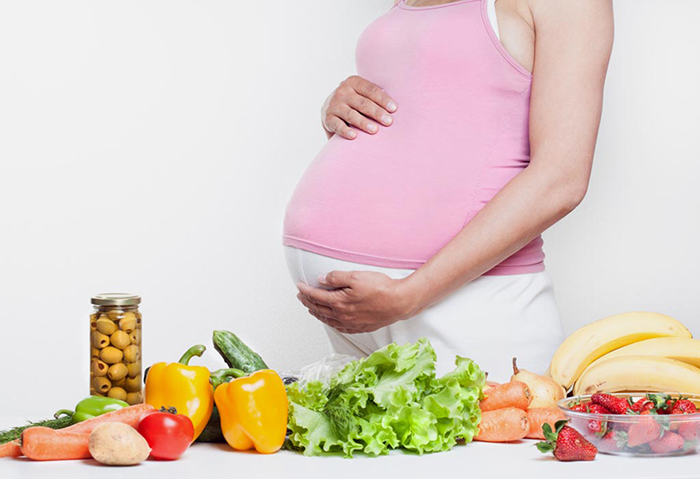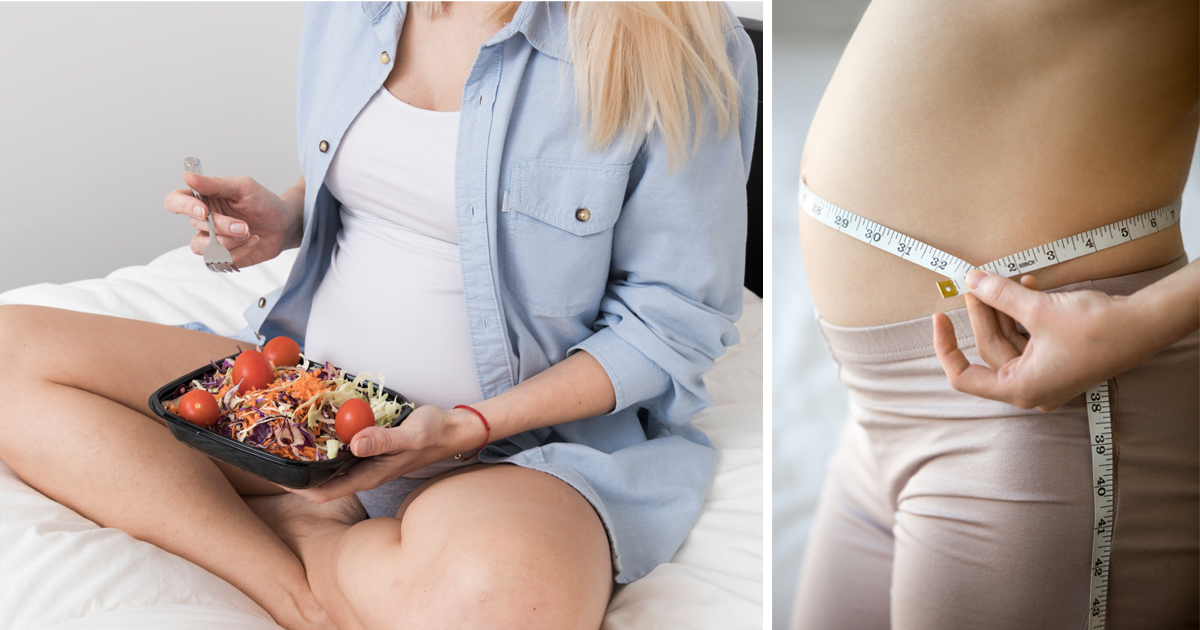You are feeling hungry (or nauseous) all the time and everyone tells you it’s okay because you are eating for two. It’s natural to be skeptical about whether you can just eat how much ever you want during pregnancy. During your pregnancy, you are indeed eating for two people, which is why the quality of nutrition is more significant than the quantity. Eating healthy has never been more important.
Why is it important to eat healthy during pregnancy?
Being significantly overweight can add to the stress of pregnancy and can even complicate things during childbirth. Besides, you are putting yourself at great risk for gestational diabetes which means that you’re likely to have a big baby and might need a C-section. Gestational Diabetes also leads to complications such as poor wound healing.
On the other hand, if you’re not eating enough, you are risking suffering from the most common complications of malnutrition such as anemia and lowered immunity. This makes you even more susceptible to infections than you already are during pregnancy which is an immunocompromised state. A baby born to a malnourished mother is likely to be underweight and the chances of premature delivery are rather high.
What to eat during pregnancy?

The need for a balanced diet and regular exercise is more important than ever during pregnancy. Depending on your caloric intake, the diet plan must be set such that you consume macronutrients and micronutrients in the following amounts:
Carbohydrates (Whole-wheat bread, Brown Rice, Pasta)- choose whole grain products that have been fortified to add nutritive values such as folic acid and iron. Consume about 10 servings per day of these carbohydrate sources.
Protein (through dairy, eggs, meat, nuts, beans poultry, and fish)- a high protein diet is very good for you and your baby during pregnancy and it fills you up without adding unnecessary fat. Try to eat 3 servings at least every day.
Fats (oils)– while too much fat is bad for you, moderate amounts are quite important to supplement brain development in children.
Vitamins and Minerals (fruits, vegetables)– green leafy vegetables, vitamin C rich fruits such as berries and citrus fruits should form a significant portion of your servings. You are recommended to consume 3-4 servings of each, fruit and vegetables to balance your diet and derive important nutrients.
How much should you eat during pregnancy?
Eating for two does not mean doubling the quantity that you normally eat. Firstly, you need to know that the prescribed weight gain range during pregnancy is between 11-16 kilograms over nine months. Women who are overweight shouldn’t be gaining more than 9 kgs whereas underweight women (or those having twins or more) are recommended to gain a minimum of 16 kgs.
To achieve this range of weight gain, you need to balance your calorie intake accordingly. If your weight falls under the normal range, your calorie intake during the first trimester should be around 1800-1900 calories per day which increases to about 2200 calories per day during the second and 2400 per day during the third.
Consuming plenty of fluids is very important, and just as important is maintaining a high protein diet. Consuming junk food or sugary foods to reach your daily calorie requirements is a bad idea as it does not nourish you.
Eating healthy at all times is important but when what you eat can directly impact your baby’s health, being extra careful is key. Watch out for your cravings and try to fit them into the calorie limit. Maintaining a healthy weight reduces the chances of complications during childbirth and afterward.

